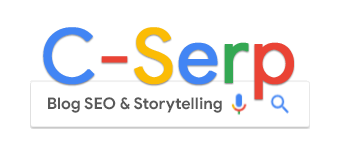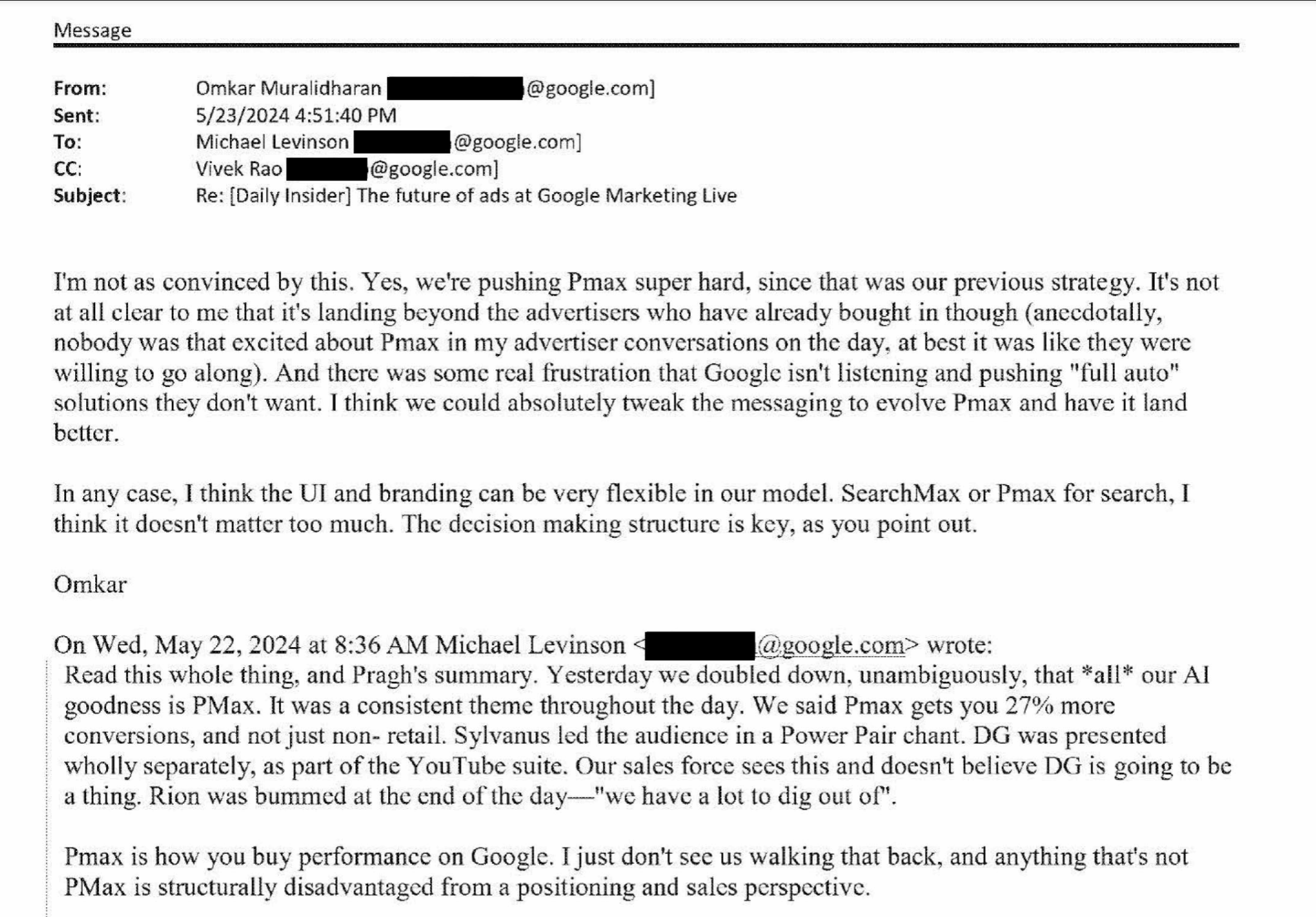Email leak: Google’s ‘Power Pair’ push in 2024 met with advertiser skepticism

Leaked internal emails from Google executives show that the company’s heavily promoted “Power Pair” campaign (using broad matched kywords and PMax) push at Google Marketing Live 2024 failed to resonate with advertisers who were frustrated about being forced into automated solutions.
Key points:
- Internal emails show Google executives acknowledged advertiser frustration with the company’s aggressive push toward Performance Max automation
- The “Power Pair” campaign from Google Marketing Live 2024 became symbolic of Google’s all-in strategy on automated solutions
- Executive concern: “There was some real frustration that Google isn’t listening and pushing ‘full auto’ solutions they don’t want”
The email. Here it is:

Why it matters. The leaked correspondence reveals tensions between Google’s automation strategy and advertiser preferences, potentially signaling challenges for the tech giant as it prepares for Google Marketing Live 2025 next week.
Advertisers just going along. The internal email among Google executives including Omkar Muralidharan and Michael Levinson paint a picture of mixed reception to the company’s Performance Max (PMax) campaign during last year’s event.
- “Yes, we’re pushing Pmax super hard, since that was our previous strategy. It’s not at all clear to me that it’s landing beyond the advertisers who have already bought in though,” wrote Muralidharan the day after the conference.
This was in response to Levinson emphasizing Google’s commitment to automation:
- “Yesterday we doubled down, unambiguously, that all our AI goodness is PMax. It was a consistent theme throughout the day.”
The intrigue. The now-famous “Power Pair” chant led by executive Sylvanus Bent III during Google Marketing Live 2024 appears to have been part of a deliberate strategy to cement PMax as Google’s primary advertising solution.
However, Muralidharan noted advertiser reactions were tepid at best:
- “Anecdotally, nobody was that excited about PMax in my advertiser conversations on the day, at best it was like they were willing to go along.”
Why we care. This revelation could signal Google might, but unlikely, reconsider its “full auto” approach at upcoming events, potentially leading to more balanced solutions that blend automation with the campaign management flexibility advertisers have been requesting. Gaining some controls and visibility (like negative keywords, device controls and channel/asset reporting) could be the result of these concerns raised last year.
What we’re watching. As Google prepares for its upcoming Google I/O and Google Marketing Live events next week, the company faces pressure to address advertiser concerns about being forced into fully automated solutions.
The emails suggest Google executives were aware of this tension even as they pushed forward with their automation strategy, with one noting they “could absolutely tweak the messaging to evolve Pmax and have it land better.”
Bottom line. Google’s aggressive automation push appears to have created friction with its advertising partners, potentially complicating its messaging strategy for upcoming announcements.


